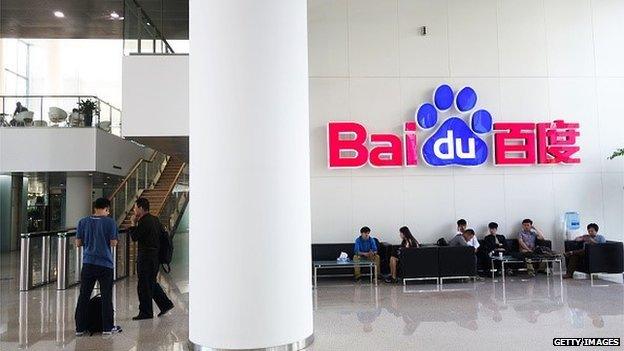China's Baidu must cut paid-for adverts after death, regulators say
- Published
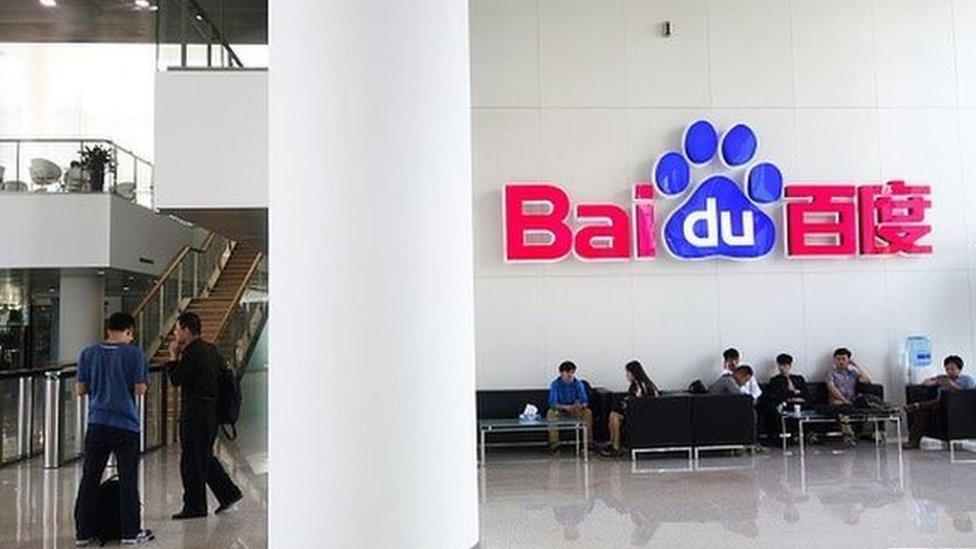
Baidu is an internet juggernaut in China
Baidu must reduce the number of paid-for adverts it includes in its search results, Chinese regulators say.
It comes after an outcry over the death of a student who tried an experimental cancer therapy that came top of the list in his Baidu web search.
Baidu had come under fire for allegedly selling listings to bidders without adequately checking their claims.
The search engine giant says it will now overhaul its search results so they are primarily ranked by credibility.
Baidu is China's largest search engine with 70% market share and more than 660 million people using its mobile search every month.
Currently, on Baidu, listings that have paid for a prominent placement are marked at the bottom with a small sign saying "promote", but many say this does not identify them as paid-for listings sufficiently clearly.
'Objectivity affected'
In a statement (in Chinese), external on Monday, the Cyberspace Administration of China said Baidu's search results appeared to have "had an impact" on student Wei Zexi's choice of treatment.
Baidu gave "too much weight" to paid-for advertisements in its search results, "commercial promotions were not clearly marked", and this had "affected the impartiality and objectivity" of Baidu's search results, the statement added.
The regulator demanded that Baidu make several changes, including:
Cleaning up the healthcare advertisements in its search results
Preventing medical institutions that had not been approved by the government from being promoted on Baidu
Overhauling its search results ranking system, so that they are not solely determined by how much advertisers have paid, and are primarily ranked by credibility
Ensuring that paid-for promotions do not consist of more than 30% of search results per page
In response, Baidu said it would "implement all the changes demanded by investigators, and deeply reflect on its shortcomings".
It would "thoroughly investigate its medical promotions, and change its search results ranking system so they are primarily ranked by credibility", and "control the number of commercial promotions per page".
Analysts said that Baidu's shares fell by 5% in pre-market trading in New York on Monday, as healthcare provides 20-30% of its search revenue, Reuters reported.
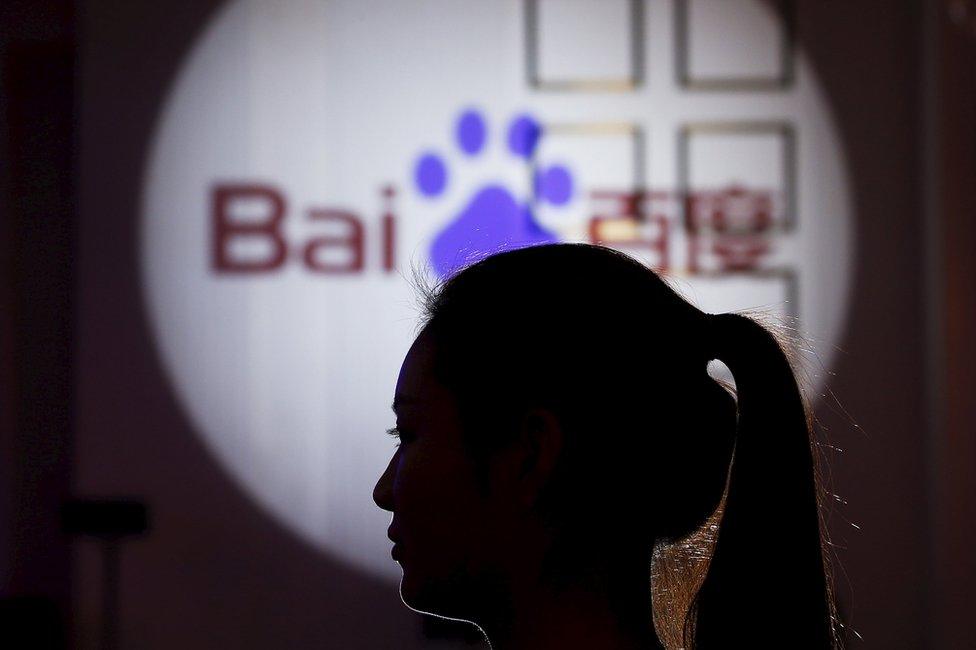
The incident has ignited public fury over Baidu's advertising practices
Student Wei Zexi, who was diagnosed with synovial sarcoma in 2014, had said he found out about a controversial cancer treatment through Baidu.
The treatment was unsuccessful and the 21-year-old student died on 12 April.
Before his death, Wei publicly accused the hospital of misleading him and his family of the treatment's effectiveness, and criticised Baidu for selling search listings for medical information to the highest bidder.
Baidu has denied ranking hospitals in promoted search results solely based on how much they paid, and says the hospital had been approved by the Beijing municipal government.
- Published3 May 2016
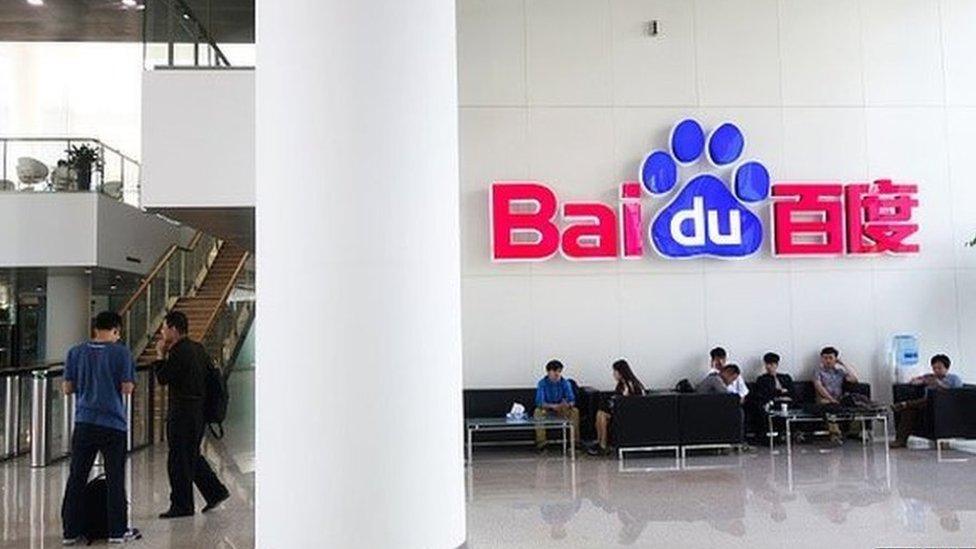
- Published18 January 2016
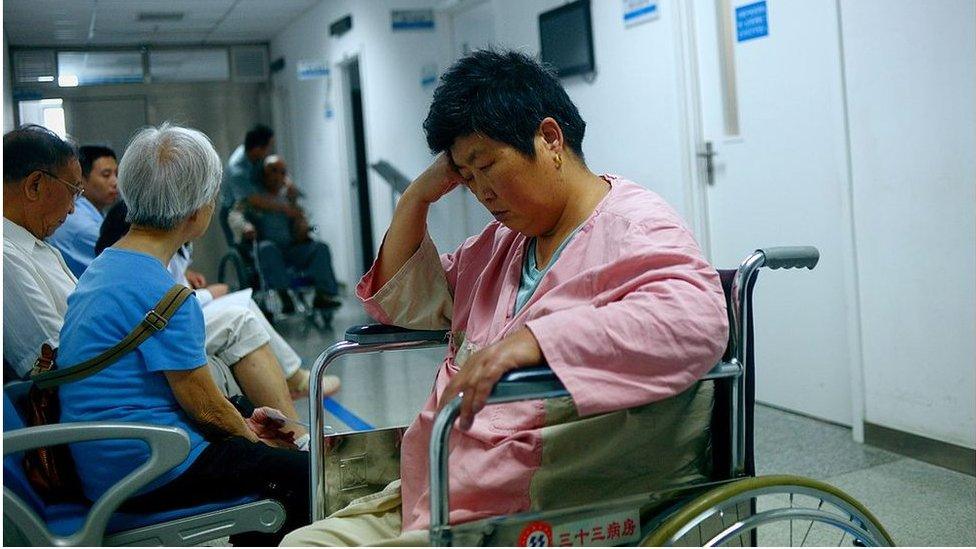
- Published26 February 2016
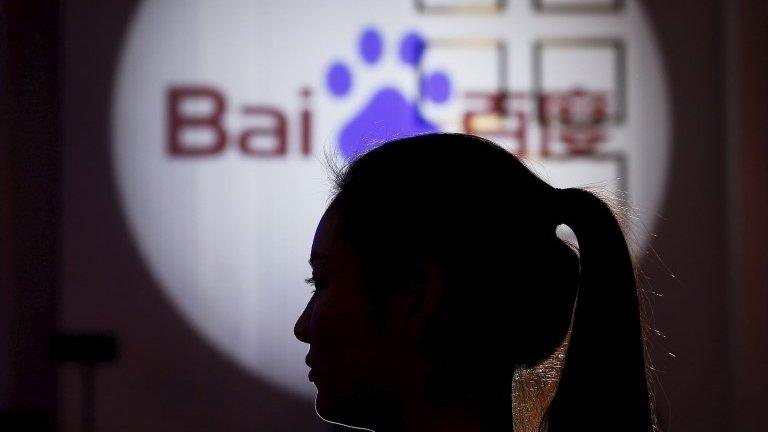
- Published27 July 2015
